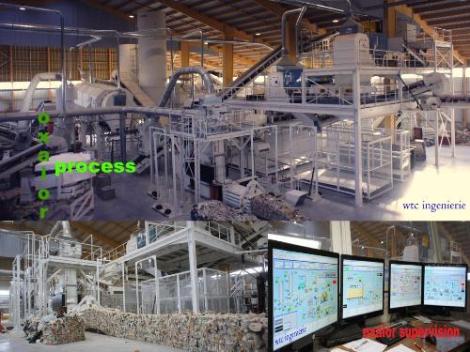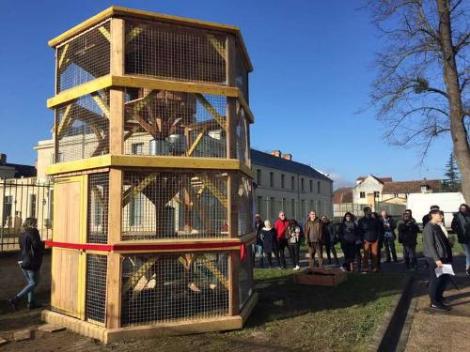Catalogue of remarkable citizen innovations 2020 : 3. The circular economy
The power of simple ideas that re-enchant the world !
September 2020
Innovation Citoyenne et Développement Durable (ICDD)
On the occasion of the 2020 Produrable Fair, in a difficult context due to a particularly aggressive pandemic, which challenges our lifestyles, our ways of producing and trading, as well as our modes of governance, the ICDD association is pleased to present some thirty innovations or remarkable citizen initiatives that it is currently supporting
Concerning climate issues, or the necessary abandonment of fossil fuels in the short or medium term, it was frequently said in high places that a solution would be found: Each time a major problem was posed, it seemed that a solution was always found, until now.
« Don’t worry: we’re taking care of you and everything is under control: you can come and go as you please. In fact, it has become clear, especially with the arrival of the pesky and elusive Coronavirus, that this is not the case: our world is very fragile, and it doesn’t take much to suddenly stop the frenzy of human activity and confuse the Academies of Science, Medicine and Technology.
Things are becoming more problematic, more complex and more difficult to predict. Faced with the urgency of the situation, faced with the tragedies that are happening and that are occurring more and more frequently, we realise that it is urgent for everyone, and in particular all citizens, to be « on deck » and to see what they can do to participate in the resolution of the problems that collectively face us all.
Citizens have not waited to be asked to do so: they have long been aware of the issues at stake and, here and there, have devised solutions that are particularly relevant:
-
By their originality
-
By their simplicity
-
By their return to a common sense that had often been lost
-
By their concern for economy of means
-
By their sense of solidarity
-
By their formidable efficiency
The « problem » being that « we didn’t ask them anything »! It is therefore very difficult for their solutions to be heard, encouraged and supported, and then, once they have been developed, to be promoted to the extent of their potential impact, which is sometimes considerable.
The field of citizen innovation has never been so vast; it concerns all aspects of common life, all dimensions of the human ecosystem. To carry out our monitoring, we have focused on the priority expectations of citizens in a number of areas.
To reduce the footprint of our activities on the planet, the royal road is the development of the circular economy: in particular, to ensure that waste linked to a particular activity becomes a resource for new activities and new uses, and that ultimate waste (that which is burned or buried in the ground) becomes increasingly rare, and if possible disappears completely.
Many successful initiatives are being taken in this direction, but the issue is so vast, and the « solutions » that seem simple are often so complex to implement, that we have only selected three « simple » innovations here that are moving in the direction of an increasingly circular economy… at the lowest cost.
Local circular economy synergies with Inex
The company Inex has developed a « computer-assisted » approach to identify potential synergies that can be implemented locally, between various companies, within a 50 km radius. Its strong points: speed of identification of the local potential of inter-company circular economy, and efficiency.
First applications in Champagne, as well as in Belgium. See Sheet 3.1. sourcing.inex-circular.com/
Dissemination of the approach in Europe: Belgium, Luxembourg, Netherlands, Germany, Spain and Italy.
Local treatment of household waste in the circular economy
With the aim of treating household waste in a radically circular, ecological and economic way, a company (Oxalor) has developed a process that allows local treatment (within a radius of 50 km) of this waste thanks to the action of quicklime, which transforms organic matter into a fertilising product.
This process is clean, odourless and very economical for local authorities… But it is not generally recognised in France. A test plant was set up in Lezay in the Deux-Sèvres and was inaugurated by Ségolène Royal in 2012. However, following malicious manoeuvres, the operating company went bankrupt and the plant had to be shut down.

However, the temporary production allowed the process to be validated; farmers were happy to be supplied with fertiliser made locally from the population’s waste. The other materials are sorted (ferrous and non-ferrous metals, plastics, etc.). All that remains is a final residue with a high calorific value.
Other projects are currently being studied and should be implemented in the coming years. (See Sheet 3.2 and www.oxalor.fr/oxalor_n/procede.php?lang=fr
Recycling organic waste in cities
Another very simple and effective approach to transforming organic waste into a resource is to use it to feed animals that readily consume the waste. This is what most households living in the countryside or on the outskirts of cities used to do in the past; this is what a social, ecological and solidarity-based enterprise, Cocott’arium, wants to reintroduce.
The aim is to reintroduce chickens into the urban environment and to offer residents a professional service for the management and maintenance of neighbourhood chicken coops. Cocott’arium is a participatory urban henhouse. It offers a solution for raising awareness of sorting and recycling bio-waste in a local way thanks to the hens.
Fun, educational and social, the Cocott’arium invites residents to deposit their biowaste in dedicated spaces. This bio-waste is sorted and given to the chickens to feed on! And residents who participate can benefit from free eggs!
Turnkey, the maintenance logistics are provided by local staff on social integration. The Cocott’arium’s « committed cocottes » are demonstrators of a circular and citizen economy. Numerous projects in Normandy and Ile de France. Sheet 3.3. and cocottarium.fr/

A citizens’ initiative that could be implemented throughout France
Sources
links to sheets : inks to the sheets see pdf doc attached(pdf/710 – icdd_rpertoire_des_innovations_citoyennes_produrable_200720.pdf)